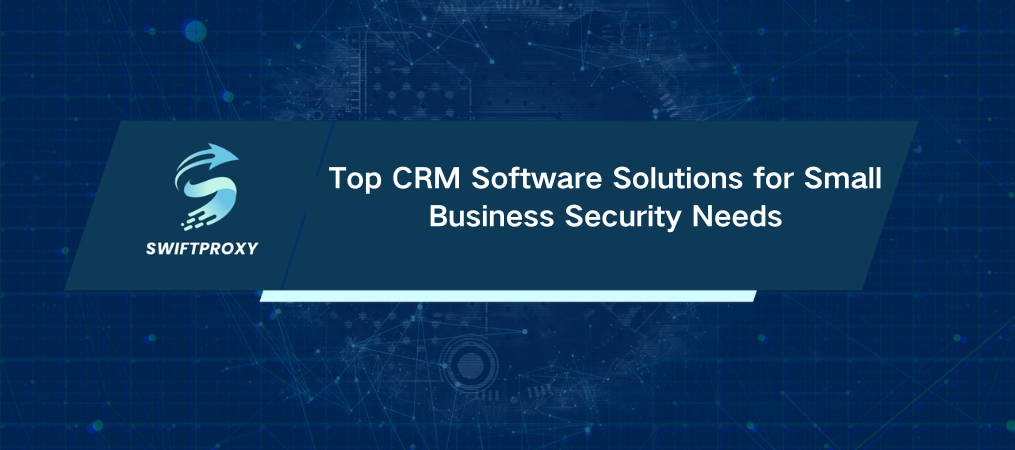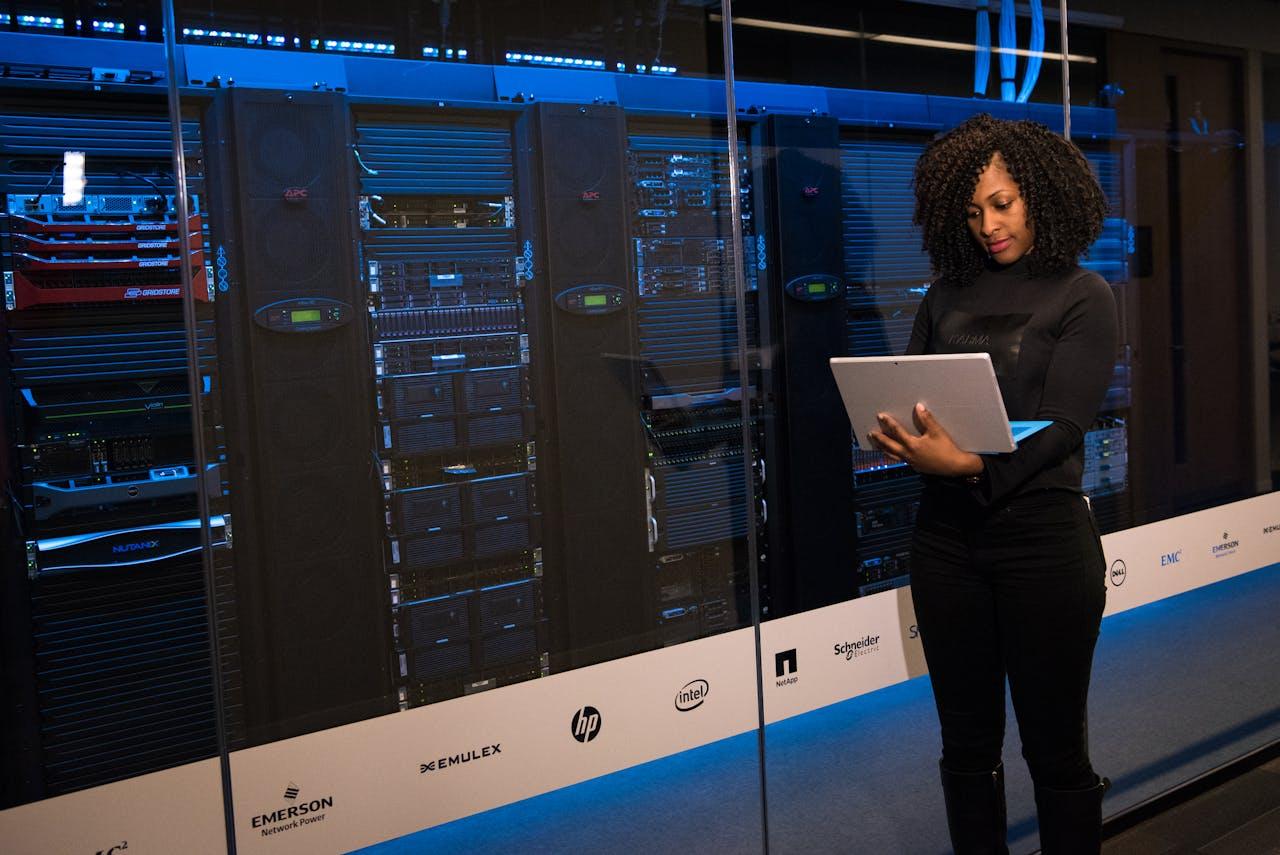Top CRM Software Solutions for Small Business Security Needs

Small businesses need CRM software to manage customer data, streamline operations, and grow. However, CRM security is as important as functionality, with cyber risks rising. A secure CRM safeguards client data, prevents breaches and meets industry standards.

Source: Pexels
When choosing a CRM, small organizations should prioritize data encryption, multi-factor authentication, role-based access control, GDPR, and HIPAA compliance. Businesses can preserve trust and efficiency while protecting customer connections with a secure CRM.
This guide reviews the finest security CRM software solutions leveraging small business security.
Essential security features
Cybersecurity plays a massive role in every organization, as it can prevent possible data breaches and complete deletion of files. According to Statista, nearly nine out of 10 firms were at risk of a major cyberattack in the upcoming year, according to a 2024 study among chief information security officers (CISOs) in the US.
In contrast, 73% of information security leaders surveyed last year expressed anxiety about a material hack against their organization.
More so, even CRM software is not susceptible to these kinds of attacks. Choosing a CRM with strong security features is essential for small business security. Here are the following features businesses must consider:
●Data encryption standards: Customer data is protected during storage and transfer by robust encryption technologies like AES-256 and SSL/TLS, which guard against data breaches and unwanted access.
●Access control and authentication: Only authorized users can access critical data thanks to features like role-based access control (RBAC), multi-factor authentication (MFA), and single sign-on (SSO), which lowers security concerns.
●Compliance certifications: To guarantee legal compliance and data protection, a secure CRM should abide by industry standards such as GDPR, HIPAA, and SOC 2. Certifications assist companies in meeting regulatory obligations and show the provider's dedication to security.
Small firms can preserve client trust and protect customer data by prioritizing these security measures.
Top CRM solutions analysis
Selecting the appropriate CRM is essential for small organizations trying to manage client interactions and improve security. The top CRM software platforms with strong security features and scalability can be examined below:
Salesforce Small Business
Salesforce offers customized enterprise-grade security for small businesses. RBAC, MFA, and AES-256 encryption are included.
The platform also follows GDPR, HIPAA, and SOC 2 laws to protect data. Salesforce's Einstein AI detects dangers, and security audits boost compliance.
Zoho CRM
Without sacrificing security, Zoho CRM is an affordable option. It offers IP limitations, SSL/TLS encryption, and audit logs to monitor user behavior. Zoho guarantees safe access with integrated data backups and two-factor authentication (2FA).
It is a dependable option for companies that care about privacy because it also conforms with GDPR and ISO/IEC 27001.
HubSpot CRM
HubSpot CRM is known for its security and simplicity. SSO, encryption in transit and at rest, and changeable user privileges prevent unauthorized access.
HubSpot delivers GDPR-compliant automated data backups for protection. Its fraud monitoring technologies detect risks and protect client data.
Microsoft Dynamics 365
Microsoft Dynamics 365 is a secure enterprise CRM. It integrates with Microsoft's Azure security infrastructure to provide DLP, end-to-end encryption, and sophisticated threat detection.
GDPR, HIPAA, and FedRAMP compliance ensures legal compliance. The platform's AI-powered security insights reduce threats and safeguard data.
Each CRM system protects small businesses from cyberattacks with crucial security features. The ideal option depends on business goals, price, and security compliance.
Security Implementation
Strong security measures must be implemented inside a CRM system to safeguard client information and stop illegal access. Small firms should prioritize the following security measures when implementing a CRM.
User permission management
Restricting user access is essential to reducing security threats. Businesses can ensure that employees only access pertinent data by granting rights based on job duties through role-based access control (RBAC) systems.
By demanding verification and a password, multi-factor authentication (MFA) adds a layer of security. Audit logs also assist in monitoring user activity and offer information about any questionable conduct.
Data backup protocols
Regular backups guarantee data integrity in the event of cyberattacks, system malfunctions, or inadvertent deletions. Automated backups to cloud storage are provided by secure CRM solutions, ensuring data recovery in an emergency.
Backups should be encrypted in transit and at rest to avoid unwanted access. Additionally, a disaster recovery plan should be in place to guarantee business continuity and little downtime.
Mobile security features
Securing these endpoints is essential since many employees use mobile devices to access CRM data. Mobile security features include end-to-end encryption for data transmission, biometric authentication (facial recognition or fingerprint) for safe logins, and remote data wiping to erase private data from misplaced or stolen devices.
Businesses can enforce security restrictions on employee devices by integrating mobile device management (MDM) with some CRMs.
Small organizations can safeguard confidential client information, stop online attacks, and guarantee adherence to industry rules when utilizing CRM systems by implementing these security measures.
Cost-security balance
Choosing a CRM for a small business requires striking the correct balance between price and security. While security is a primary concern, companies must consider ROI and pricing.
Here's how to properly assess the cost-security balance.
Pricing models
CRM suppliers provide a range of price options so companies can select a plan that best suits their spending limits and security requirements. Among the most popular models are:
●Freemium plans: Limited security and basic functionality make it perfect for startups, but it might not have the most sophisticated safeguards.
●Subscription-based pricing: Plans with payment tiers, either monthly or annually, frequently offer more security at higher tiers.
●Per-user pricing: It is scalable and charges according to the number of users; however, it could be expensive for expanding companies.
●Enterprise plans: There is custom pricing for companies needing the best security and compliance features.
Security feature tiers
Businesses can select from various security features offered by CRM providers, depending on their budget and risk tolerance.
●Basic tier: Consists of limited access control, password protection, and SSL encryption.
●Mid-level tier: Includes tools for data backup, role-based access control (RBAC), and multi-factor authentication (MFA).
●Enterprise tier: Offers specialized cybersecurity support, compliance certifications (GDPR, HIPAA), AI-powered security monitoring, and sophisticated threat detection.
ROI considerations
Purchasing a CRM with robust security features guards against expensive breaches, fines, and harm to one's reputation. To evaluate ROI:
●To determine long-term savings, weigh the costs of CRM against possible security threats.
●Analyze the advantages of compliance that lower legal risks and boost confidence.
●Take into account efficiency-boosting productivity improvements, including seamless integrations and automated security updates.
Small businesses may protect client data and maximize long-term value and scalability by choosing an affordable, secure CRM.
Securing your CRM investment
Small businesses must select a CRM with robust security capabilities to safeguard client information, maintain compliance, and fend off online attacks. Data encryption, user access control, compliance certifications, and mobile security features are essential security factors.

Source: Pexels
Prominent CRM programs like Microsoft Dynamics 365, Salesforce, Zoho CRM, and HubSpot have diverse price points and security levels to accommodate various business requirements.
Since investing in a safe CRM lowers risks, builds trust, and guarantees long-term business success, striking a balance between cost and security is essential. Small businesses can safely manage client interactions while protecting their precious data by putting the proper security measures in place.

















































